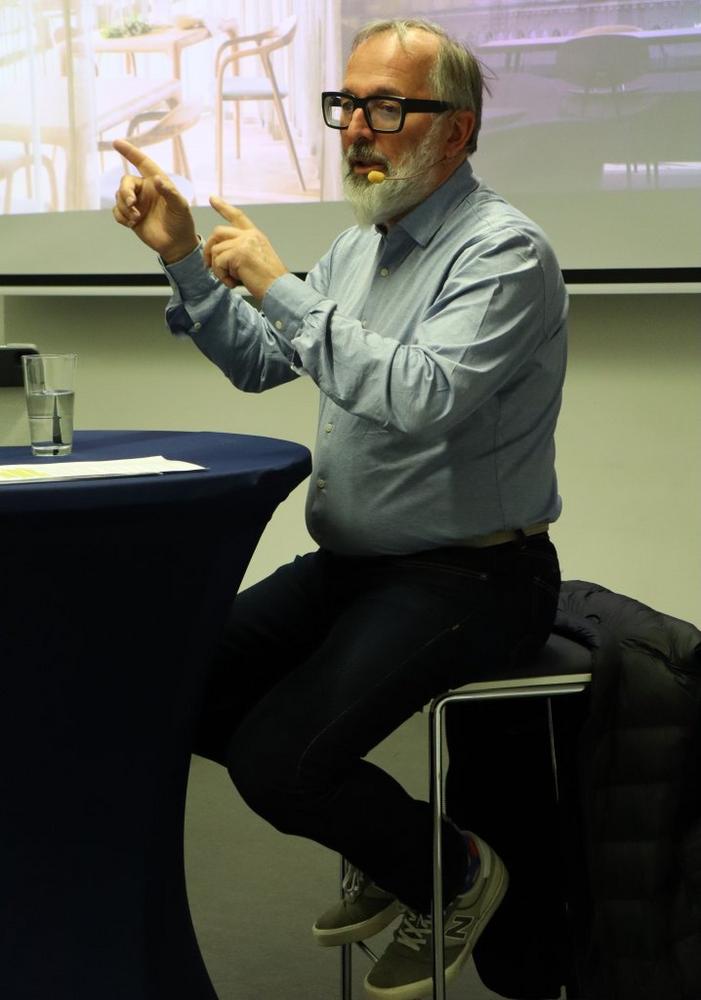Everything in its season

Breaking News:
Kathmandu Nepal
Freitag, Nov 15, 2024

For Niederkofler, cooking is more than just a job: “Eating and cooking are culture. Today, we are increasingly trying to build on old traditions, not only in the kitchen, but also in architecture, design and thinking.” In practice, this means that Niederkofler only uses regional and seasonal products from his native Dolomites. “We don’t use citrus fruits because they don’t grow at 1,700 meters above sea level. There are no olive trees at this altitude, so we don’t use olive oil either. And we don’t produce any rubbish. This is respect for nature,” explains the Michelin-starred chef.
Cook the mountain
Niederkofler’s concept is called “Cook the mountain”. The vision arose after a rather classical training that led him to various restaurants: “I didn’t have the money to travel the world, so I had to find the easiest way and became a chef,” Niederkofler reflects. After working in New York, Tokyo and London, he returned to his homeland in 2008: “Everything I have learned in the world, I have brought with me to the Dolomites.” Customer surveys helped to sharpen the profile: “I always asked: Why are you coming here this year? The answer was always: because of the mountains and the food. Then I realized that I was doing something wrong.”
This rethink led to the concept that earned his restaurant Atelier Moessmer Norbert Niederkofler three Michelin stars and one Green Michelin star: “We work with around 40 farmers, always in direct contact and without intermediaries.” In spring, summer and early autumn, one third of the products are used. Two thirds are stored for the following winter. According to Niederkofler, this has nothing but advantages: “It’s always a cycle with nature. Nature gives us exactly what our body and soul need in terms of color, consistency and texture in every season.” That is why he and his team have tried to develop recipes that do not produce any waste. One of them is aptly named “Once upon a time, there was a drought”.
Sustainable products, sustainable design
For Niederkofler, who is a true believer, the concept of sustainability does not stop at the edge of the plate. His second restaurant, AlpiNN, was created in 2018 at 2,200 meters above sea level. His project partner is the designer Martino Gamper, who became known for his project “100 days, 100 chairs”. He went around London collecting what people threw away. In 100 days, he used them to create 100 chairs. That is arguably the most sustainable design in the world. Niederkofler gave the artist two specifications: “Firstly, I wanted a living room in the mountains, and secondly, the philosophy of ’Cook the Mountain’ should also be reflected in the design.” The mission was a success: “You can point to where the products, the vegetables and fruit come from. The same applies to the materials and the fabric on the ceiling.”
Another project close to the star chef’s heart is promoting young talent. He has founded an academy for students in Saudi Arabia: “To date, we have trained around 130 young men and women,” says Niederkofler, adding: “The head of this program is one of our chefs; he is only 25 years old.” His two restaurants in the Dolomites are also ruled by youth – the average age of the entire team is 26. His philosophy: “There is no difference between service and cuisine. That is why we really grow together as a team. It’s like a family.” His goal is to take the young people with him and let them grow, because one thing is certain for him: “The only thing that can stop you in the world is your mind. If you take things step by step, you can achieve anything.”
No Plan B
“We are running out of nutrient-rich soil,” warns Niederkofler. If food waste continues at its current rate in all areas, he estimates that resources will only last for another 40 years. “We know that 30 to 60 per cent of products in private households are thrown away,” explains the Michelin-starred chef. A rethink is needed here, because “we only have this one planet, there is no planet B. We have to ensure that the next generation can cook, that our children grow up on a healthy planet and can lead a life worth living.” For Niederkofler, it does not matter where the change takes place: “If someone cooks in a cafeteria and uses fresh products, it has the same value for me as what we do.” And now is the right time to start.
Die TUM Campus Heilbronn gGmbH
Bildungscampus 2
74076 Heilbronn
Telefon: +49 (0) 7131 264180
Telefax: +49 (7131) 645636-27
https://www.chn.tum.de/de
![]()